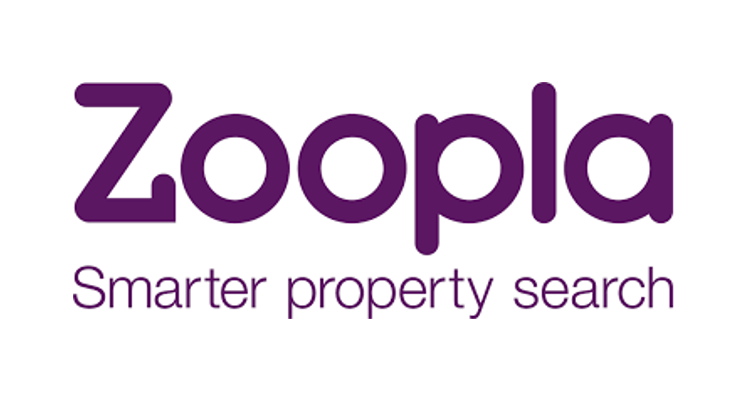BREAKING PROPERTY NEWS – 21/07/2022
Daily bite-sized proptech and property news in partnership with Proptech-X.
Propertymark: Summer market shows signs of cooling
In the latest Propertymark housing report, the first confirmed indications that high demand is easing across the UK were observed. However, some sellers may have pitched their prices too high for the current market, says Nathan Emerson.
In June, new buyer registrations per Propertymark member branch are close to what was seen in the winter with a peak over Spring. Propertymark says this is “what estate agents would expect from a traditional market.”

To support this trend, data indicates that the average number of viewings per property has fallen to 4.4 in June, previously 6.2 in April. This reduction of 29% is interesting, to say the least.
When it comes to sales agreed, there were nine on average for each Propertymark member branch in June, echoing the previous two months and in line with the pre-pandemic average, which is based on 2010-2019 figures.
Propertymark reports that sales agreed as a percentage of stock remains high – 33% in June – compared to pre-pandemic average of 17% of stock sold in June. Again, this is taken from 2010-2019 figures.
The report is quick to point out that buyers are starting to get homes under asking price. 27% of its member branches have reported that most sales were completed below asking price. In March, the figure was 15%.
Nathan Emerson, CEO of Propertymark, comments: “For the past two years agents have seen a relentless market which defied patterns that we as practitioners had become accustomed to. However, this summer is seeing seasonal trends return. This cooling down is allowing the number of homes available to buy to recover, and interestingly, a subtle but telling change is in the prices being achieved.
“Compared to March 2022, this month has seen a 12 per cent increase in the number of agents reporting that the majority of their sales were agreed below asking price.”
COMMENT: How Technology Adoption Will Drive Future Growth of Real Estate by Pete Harris
Over several decades, we have watched as technology has revolutionized commerce, communication, information, transportation and most recently, fintech. Yet real estate, the largest global investor class ($32 trillion), remains in the comparatively early stages of tech adoption. But we should not be in any doubt – the data revolution is coming fast. Commercial real estate is undergoing a paradigm shift, with technology finally catching up with the market’s needs, forever altering what was once an established playing field.
One only needs to think about the retail market before Amazon, how Facebook changed the advertising industry, or the way that Uber transformed transportation. Frankly, anyone who thinks they can attempt to operate in the real estate industry in the coming years without embracing the best proptech on offer is not being realistic with the facts.

Technology can and does support the real estate industry in a myriad of ways; for example, through the collection and analysis of data to measure environmental, social and governance (ESG) performance, allowing optimisations to be carried out in real time to improve sustainability factors such as energy usage and waste. Key technologies shaping the future of real estate are automation tools, Internet of Things (IoT), Augmented Reality (AR), Virtual Reality (VR) and Blockchain.
Up to this point, where proptech has probably had the most impact across the built environment is in the evolution of IoT devices, for example, in maintenance systems that run buildings, mobile devices, energy smart meters, and numerous other sensors placed within buildings and plant rooms. This will of course accelerate in the next few years. It is also only a matter of time before people realise en masse that there is a real return on investment in sustainable technology. We have been at a point for some time where the financials of sustainable tech stack up very clearly, and as we are seeing advances and scale in areas like renewable energy, data and transparency in terms of tracking energy cost, consumption and impact.
We are also in the midst of disruption in the space of health and wellbeing workplace technology, which includes not just wearable devices and smartphone health tracking apps, but occupational health tracking systems, employee engagement apps, virtual assistants, and even smart lockers. Digital workplace technology creates a far healthier lifestyle for the tenants or the users of space – they are more productive and satisfied in their jobs, and more content overall as a partial consequence of being fulfilled by the environments in which they spend time. When you think of the cubicles which were the offices of the past, people working close together, coming into work sick because that was the only option, the new way of working helps employees be healthy, be present, be sharp, energized, and allow them to interact in a symbiotic way with the embodiment of their company culture: its workplace.

The journey that we as JLL are on regarding technology is interesting, because as a company it is one of the dominant focus areas of our business. There are two main aspects to the journey: Long before proptech was a buzzword, JLL recognized that there were already so many technologies emerging that it was proving difficult to keep track of and take stock of what was out there, and how it could be used in the built environment. So in 2019, we formally partnered with MIT to create a proptech hub called the JLL MIT Real Estate Innovation Lab, which tracks emerging proptech, as well as begins to build the data science army – the infrastructure of people who can actually engage in those stories, be able to talk to stakeholders and reflect back to them ways to make better decisions.
The second is that back in 2017, JLL set aside a significant amount of money funded purely off its own balance sheet called the JLL Spark Fund. The purpose of this fund was to identify innovative scalable Silicon Valley proptech companies, invest in them earlier on with a view to shaping and then infusing them into our business and the industry as a whole. Since that time, the Spark Fund has invested in twenty of the best proptech startups in the world and we are beginning to see the fruits of that, which is truly exciting and game changing.
In summary, proptech is and will continue to drive efficiencies in real estate, ultimately leading to improved asset returns, reduced friction and greater transparency. Organisations must now embrace solutions that will drive savings, energy and time, while increasing revenue. It is incumbent upon organisations to deploy solutions that best work for them in order to remain relevant and competitive in the market.
Peter Harris is Co-CEO, sub-Saharan Africa and Maghreb, JLL.









